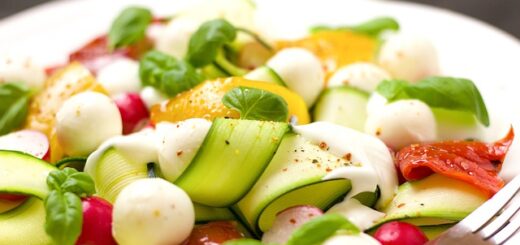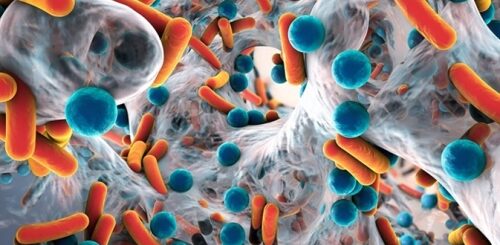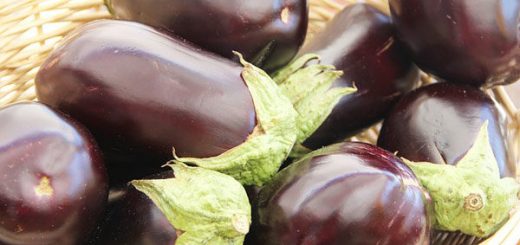Low Sugar Fruits: Which fruits are low in sugar?

Fruit and sugar, it remains a subject for discussion. You may prefer low-sugar fruits because of your diet. That is why in this blog we give you a list of fruits that are low in sugar. But should you also avoid the sugar in fruit for your health?
Low Sugar Fruits List
- Fresh cranberries: 3.4 grams
- Raspberries: 4.5 grams
- Strawberries: 5.1 grams
- Passion fruit: 6 grams
- Grapefruit: 6.7 grams
- Blackberries: 6.8 grams
- Nectarine: 7 grams
- Plum: 7.3 grams
- Papaya: 7.8 grams
What are fruit sugars?
Before we look for low-sugar fruits, let’s first look at which calories and what type of sugar are actually in fruit.
Fruit contains a lot of water and almost no fat or protein. Almost all calories found in fruit come from carbohydrates. It is especially during the ripening process that the slow carbohydrates are converted into fruit sugars or fructose.
Fructose is one of three monosaccharides (simple sugars). The other two are glucose and galactose. Fructose contains as many calories as other sugars (4 kcal per gram), but is processed differently in the digestive system.
- It is transported in a different way in the small intestine.
- And once fructose enters the blood, it must first pass through the liver to be converted into glucose.
This process takes time and energy and therefore it is best not to eat unlimited fructose or fruit. Because that can cause digestive problems.
How much sugar in fruit?
The amount of sugar in fruit mainly depends on the type. On average, fruit contains about 6 to 16 grams of sugar.
The exact amount of fructose does not only depend on the type of fruit, but also on the species between them. For example, one type of apple may contain more or less fructose than another. And a certain type of apple grown on rich soil may contain more sugars than the same variety grown in a different way. Just think of the tree itself, and how many apples are hanging from it, when the apple is picked, and so on.
How much sugar is in a banana?
A banana contains an average of 88 kcal per 100 grams. It contains almost no fat (0.3 grams) and no protein (1.1 grams). Of the 23 grams of carbohydrates, about 12 grams are sugars. A banana therefore contains quite a high amount of carbohydrates and sugars. Many people are therefore quite sensitive to eating bananas.
How much sugar in an apple?
There are many types of apples, but on average apples contain about 52 kcal per 100 grams. These calories come almost entirely from the 14 grams of carbohydrates, of which 10 grams are sugars. An apple contains almost no fat (0.2 grams) and no protein (0.3 grams).
Which fruits are low in sugar?
To make a fair comparison, we have prepared a list per 100 grams. Low-sugar fruits contain between 3 and 10 grams of fructose. From about 8 grams you can say that it contains a relatively large amount of sugar.
High Sugar Fruits
- Watermelon: 8 grams
- Orange: 8.3 grams
- Orange: 8.5 grams
- Pear: 8.7 grams
- Peach: 8.7 grams
- Kiwi: 8.8 grams
- Mandarin: 9.2 grams
- Blueberries: 10 grams
- Cherries: 11.5 grams
- Pineapple: 11.6 grams
- Mango: 13.9 grams
- White grapes: 15.6 grams
- Figs: 16.6 grams
- Blue grapes: 16.8 grams
Fruit without sugar?
Fruit without sugar is almost impossible to find. Botanically speaking, the avocado is a fruit and falls under the fruit types. An avocado contains only 0.7 grams of sugar per 100 grams! Avocados are mainly eaten because of the fats (15 grams / 100 grams). An avocado still contains a lot of calories. (160 kcal/100 grams).
Sugar in fruit and diabetes
Too much fructose isn’t good for you, that’s right. But it is extremely important not to see fructose as a poison and therefore suddenly avoid all fruit. Fructose is used on a large scale by the food industry in the form of fructose glucose syrup, among other things, for all kinds of pastries and fast food. And in that form and in that high concentration it is very addictive and makes you fat.
But fructose in the form of fruit, brought by Mother Nature, is very healthy. Fruit also contains vitamins, minerals and even enzymes to properly digest the fruit sugars. It has been proven that fruit is good for health and even protects against cardiovascular disease and type 2 diabetes!
Are you really concerned about your health? Then leave all those cookies with addictive synthetic sugars. Cookies, chocolate and even “healthy” breakfast cereals sometimes contain up to 30% added sugar!
Instead, eat 2-3 pieces of low-sugar or high-sugar fruit daily, which doesn’t make much difference unless you’re sensitive to it or want to limit your calories. Because keep in mind that too much fruit is not recommended because the fructose can cause digestive problems.











